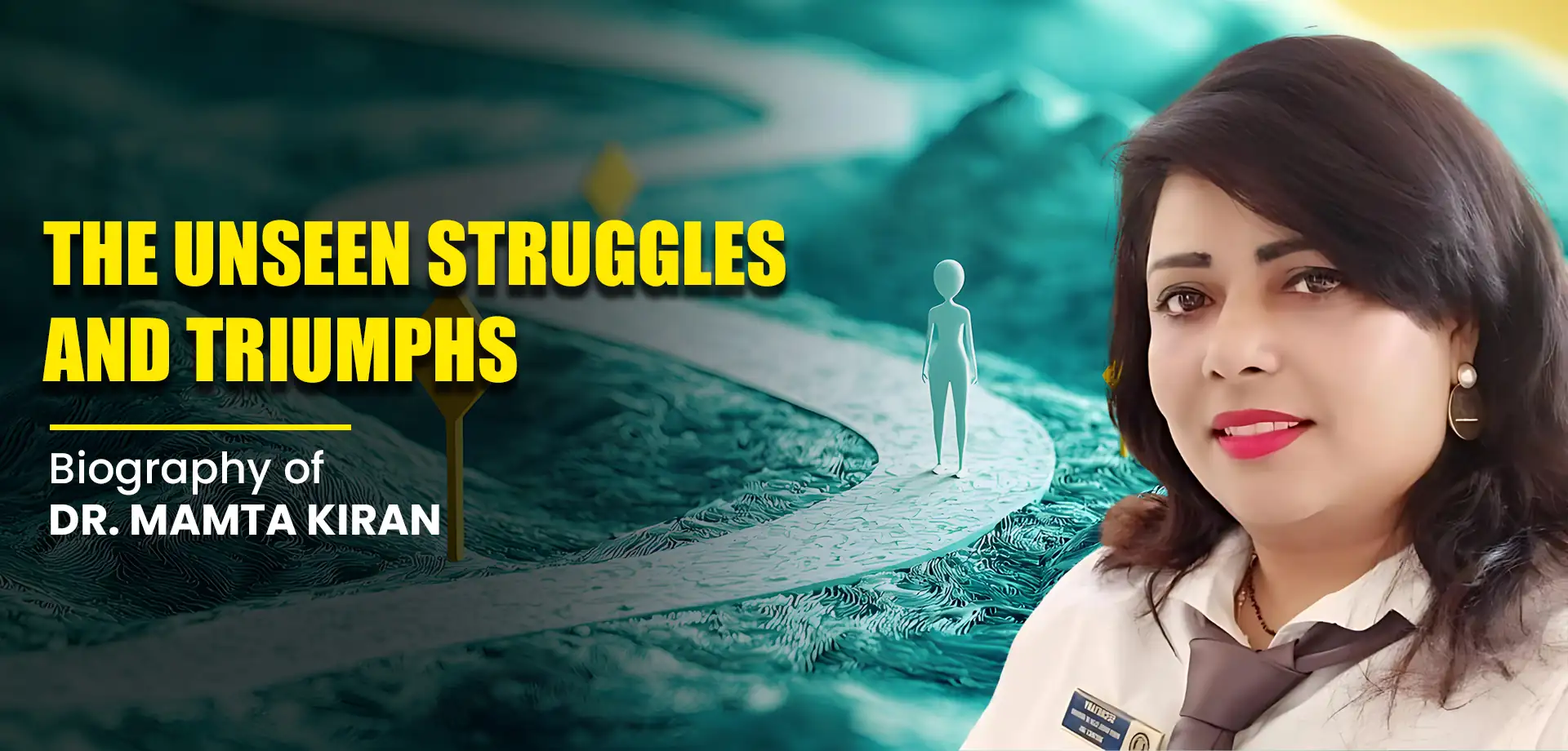
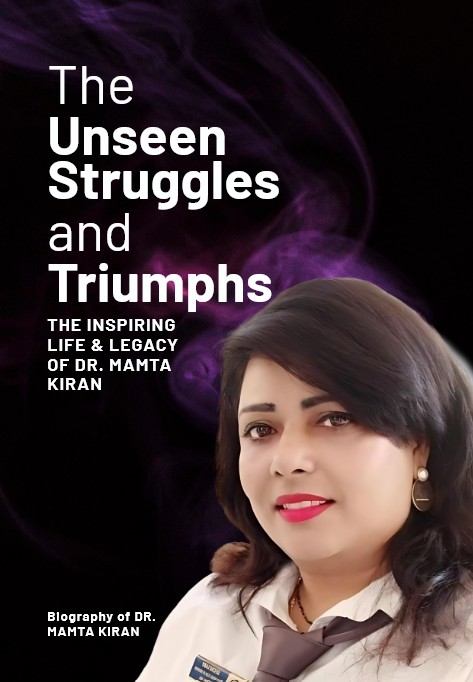
"A life dedicated to serving others is a life that leaves an indelible mark on the world, for it is through compassion and action that we truly create lasting change."
Introduction
Dr. Mamta Kiran’s journey is one of remarkable resilience, compassion, and unwavering commitment to making a difference. Born in a disciplined environment and shaped by the values of service instilled by her parents, she has spent her life empowering the underprivileged, particularly in the fields of education and social welfare. As the founder of Divine Public School, she has transformed the lives of countless children, providing them with opportunities that many thought were beyond their reach. Her work extends far beyond the classroom, as she actively engages in social causes, from advocating for women’s rights to supporting underprivileged communities.
Her legacy is not just about academic excellence, but about fostering hope, offering support in times of crisis, and creating a ripple effect of change. Through her dedication, she has become a beacon of inspiration for many, embodying the power of selfless service and the belief that one person can truly make a difference.
Dr. Mamta Kiran
Phase 1 : The Foundation of Life
“I was raised in a home where kindness was a habit, discipline was a way of life, and helping others was simply who we were.”
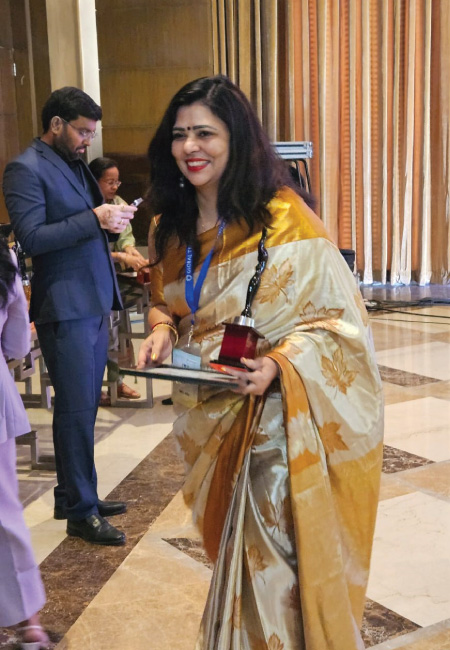
Dr. Mamta Kiran was born in May 1977, in a small town called Raxaul, which sits right on the border of India and Nepal. Life in Raxaul was simple but full of culture, tradition, and quiet strength. It was here that the story of a little girl with big dreams began—shaped by love, values, and the strong hands of her parents.
Her father, Mr. Sitaram Mahto, was a sub-inspector in the police. He was a man of discipline—firm when needed, yet incredibly kind and gentle at heart. He wore his uniform with pride, serving the country with honesty. But what made him special was not just his job. It was the way he treated people. Even with his busy schedule and serious responsibilities, he always found time to help others. Whether someone was in trouble or just needed support, he was there.
Her mother, Ms. Muneshwari Devi, may not have gone to school—she was illiterate—but her heart was full of wisdom and love. She managed the home with grace and quietly taught the children the biggest lessons of life: kindness, patience, and giving without expecting anything in return. She didn’t need books to teach these values; she lived them every single day.
Growing up in this home was like attending a school of life. From an early age, Dr. Mamta Kiran was surrounded by stories of struggle and strength, of rules and responsibilities, of care and compassion. She saw her parents helping poor people—offering food, clothes, or just a listening ear. It left a deep mark on her young heart. She began to understand that the true measure of a person lies not in how much they have, but in how much they give.
She spent her schooling years in Muzaffarpur, a town known for its historical and educational background. There, she was a bright and disciplined student, always respectful, always ready to help others. The habits she picked up at home—waking up early, studying sincerely, listening to elders—followed her into the classroom. Her teachers admired her simplicity, her quiet confidence, and the way she treated everyone equally.
At home, Dr. Mamta Kiran was part of a close and loving family. She had two brothers and one sister. Her elder brother became a doctor, a man who followed the path of healing and service. Her younger brother rose to a respected position as a General Manager at NTPC, showing what dedication and focus could achieve. Her elder sister chose to be a homemaker, giving her love and energy to her family. Each sibling had their own journey, but the values they shared kept them united.
Phase 2 : The Journey of Knowledge
“Life may ask you to pause your dreams, but it never says you can’t return to them. No matter your age or situation, if your will is strong, your future is still waiting.”
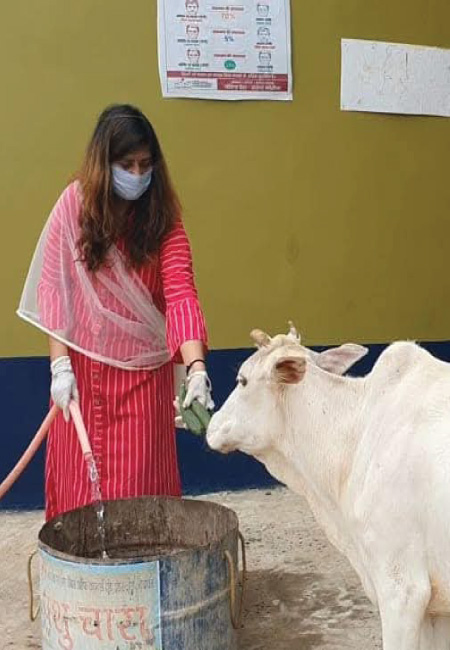
The journey of Dr. Mamta Kiran’s academic life was not a straight road—it was a winding path, filled with pauses, responsibilities, and quiet determination. But what made her journey extraordinary was not just the degrees she earned, but the resilience with which she returned to her dreams, again and again.
Dr. Mamta Kiran began her primary education in a government school. Her early schooling was simple and rooted in the values of hard work. Since her father, Shri Sitaram Mahto, was in the police, their family followed a strict and disciplined lifestyle. There were clear rules at home, and freedom was limited. Social outings were rare, and education took place mostly within the four walls of the house. But this “secluded” environment also gave her focus. While other children played freely outside, she quietly built a strong foundation in her studies.
She completed her matriculation (10th standard) from the Bihar Board, staying consistent in her efforts. Her determination took her to M.D.D.M. College in Muzaffarpur, where she pursued her Intermediate (12th) between 1992–1994. She was young, sincere, and full of hope. But soon after finishing her intermediate, life took a big turn—she was married at the age of 18.
Marriage brought along a new world, filled with responsibilities, expectations, and family life. Like many young women in India, Dr. Mamta Kiran put her dreams on hold. She became a daughter-in-law, a wife, and later, a mother—but somewhere deep in her heart, the student in her never died. It simply waited for the right moment to rise again.
Years later, when her children were older and the home was more settled, she found the courage to return to her books. From her in-laws’ home, with their support and her own quiet willpower, she resumed her education. In 2012, she proudly completed her Bachelor of Arts in Sociology (Hons.) from Magadh University, Bihar.
That first step back opened many doors. She went on to pursue her M.A., which she completed in 2016—a moment that proved age and circumstance could never be a barrier to education if the heart is strong. Ready for the next one!
Phase 3 : Professional Life
"The greatest strength is not found in never facing challenges, but in overcoming them with determination and love. When you believe in your mission, every obstacle becomes an opportunity to grow and make a difference."
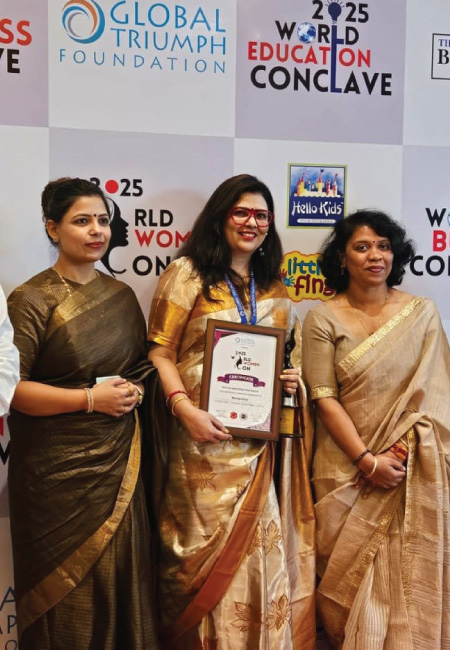
Dr. Mamta Kiran’s professional life didn’t begin with the typical hustle of corporate ambition. It began with a calling—a mission to serve, to educate, and to make a lasting difference in the lives of underprivileged children. But like many meaningful journeys, it was not a smooth path. It was a journey marked by personal sacrifices, challenges that seemed insurmountable, and victories that were hard-won.
After completing her graduation in 2012, Dr. Mamta Kiran was filled with hope and excitement about her future. She applied for a job at a Gramin Bank, eager to step into the professional world. Her application was accepted, and she was selected. It seemed like the perfect start—until life threw a curveball. She discovered she was pregnant, and with the arrival of a new life on the way, she made the courageous decision to step back from her career in banking to devote herself to family.
Though her professional journey had to be paused for the time being, fate had already set the stage for something even more meaningful. Around the same time, her father-in-law, a man with a deep sense of compassion and a visionary heart, spoke of a dream he had—to establish a school for underprivileged children. He hoped that after his retirement, he could help those children who had no access to education. Sadly, before he could take any action, he passed away. His dream, however, did not die with him.
This became the defining moment for Dr. Mamta Kiran and her husband. They decided to honor his memory by turning his vision into a reality. With very little experience but a lot of heart, they took the first step in 2005—they established Divine Public School, a school for children who could not afford the luxury of high-cost education. They started with a modest number—just 50 students—but the dream was grand: to help children learn how to read, write, and get the basic skills needed to enter mainstream education.
But the path was far from easy. Dr. Mamta Kiran’s husband was posted in Ranchi, while she lived in Deoghar, raising their two children. With no staff to help and a lack of financial resources, the early years were marked by struggle. But Dr. Mamta Kiran had a fierce determination. She did everything herself. She taught classes, ran the reception, acted as the peon, the driver, and even the sweeper. The school was not just an institution to her—it was a mission, and it required her total dedication. Despite the challenges, her resolve never wavered.
The first annual day celebrations were a significant milestone for the school. But due to financial constraints, there were no funds to rent a tent or buy decorations. So, Dr. Mamta Kiran used her own sarees to create a makeshift tent. She didn’t complain; she just found a way to make it work. The children were the stars of the event, and she made sure that despite the modest setting, they would shine.